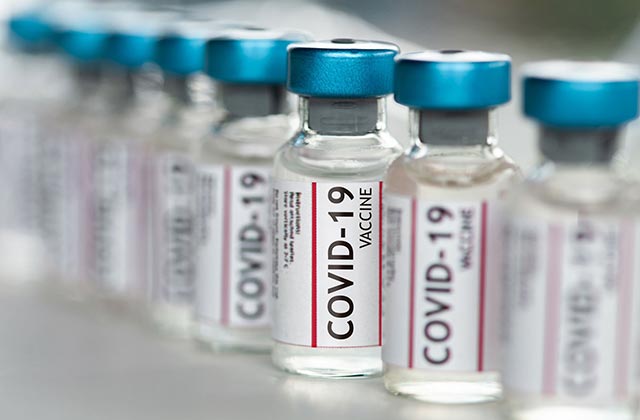Canadian Vaccines Your Baby Should Have
Vaccinations are one of the most effective means of preventing infectious diseases and are responsible for the reduction of several diseases including polio, measles, and the complete eradication of smallpox. It involves a bacteria or virus that is purposely introduced to an individual’s body, usually through injection, for the person’s immune system to develop resistance to a specific disease.
Through vaccinations in Canada, there has been an 87 percent decrease in whooping cough and a 99 percent decrease in measles, diphtheria, and rubella. In 2017, around 90 percent of Canadian children had received one dose of the measles-mumps-rubella vaccination by their second birthday. In 2018, the rates of influenza immunization have fluctuated and only 31.5 percent of Canadians have received the vaccination.
In most cases, vaccines have no side effects. However, just like any other medication, certain unwanted effects may occur for other people. Canada, like many other countries, has a system to report such adverse events to monitor the safety of vaccinations. The side effects from vaccinations are extremely rare and most often non-serious.
Vaccines for Babies and Toddlers
In the first few years of life, your child is most at risk of contracting a serious and deadly disease that can be prevented through vaccines. These diseases can cause very serious illness, chronic disease, and even death. Through vaccines, your child’s immunity becomes stronger.
If you don’t vaccinate your child early, infections from certain diseases can seriously harm or kill them before their body develops a strong immune system. The weakened or killed virus or bacteria in vaccines triggers your child’s natural immune response to provide long-term protection against a disease without the risk of getting it.
If you want to give your child maximum protection, consider the following vaccines that are available in Canadian health centers:
First-year vaccination
At 2 to 4 months old, babies should receive the vaccines stated below:
- Diphtheria, tetanus, pertussis, polio, Haemophilus influenza type b
(DTaP-IPV-Hib) This is a combined vaccine that protects children against five diseases – diphtheria, tetanus, pertussis, polio, and serious diseases like meningitis caused by the Hib (Haemophilus influenza type b) germ. This vaccine is required by law for all children attending school unless they are exempted.
- Rotavirus
Rotavirus is a contagious virus that causes gastroenteritis or the inflammation of the stomach and the intestines. Severe rotavirus infections mostly affect babies and young children.
- Pneumococcal conjugate
Pneumococcal disease is an infection caused by bacteria called streptococcus pneumonia. This can range from ear and sinus infection to pneumonia and infections in the bloodstream.
At 6 months, babies should receive the following:
- Diphtheria, tetanus, pertussis, polio, Haemophilus influenza type b
Diphtheria is a disease of the nose, throat, and skin. Tetanus can happen if dirt with tetanus germ gets into a cut in the skin. Pertussis or whooping cough, a serious disease for children. Polio is a serious disease you can get from drinking water or eating food with polio germ. Hib is the most common cause of bacterial meningitis in children from two months to five years of age.
- Rotavirus
They cause fever, diarrhea, and vomiting. It is also the most common cause of severe diarrhea and hospitalization for diarrhea in children.
At 12 months, babies should receive the following vaccines:
- Measles, mumps, and rubella
MMR is a vaccine against measles, mumps, and rubella
- Pneumococcal conjugate
- Meningococcal conjugate (Men-C-C)
Men-C-C is a vaccine that prevents the meningococcal disease, a serious bacterial infection caused by the Neisseria meningitis bacterium.
Second Year Vaccinations
At 15 months, babies should receive the vaccines below:
- Chickenpox (varicella)
Chickenpox is caused by the varicella-zoster virus that occurs before 12 years of age.
At 18 months, babies should receive the vaccines below:
- Diphtheria, tetanus, pertussis, polio, Haemophilus influenza type b
Exemptions
If your child requires an exemption from the immunization requirements for school attendance, follow and speak to your local Public Health Unit. Children who are exempt from immunization are at higher risk of disease. When an outbreak occurs, they should be removed from the school immediately.
Consult your Doctor
Immunization has helped children against deadly and serious diseases over the years. They are great security for whatever viruses and bacteria that your child may get from random people, places, and the varying seasons that occur each year. There are greater risks for children who are not vaccinated than those that have received the vaccine. Great research and testing have been put into the making of vaccines and they have been proven to be effective over the years. For more inquiries about the vaccinations of your child, consult a doctor. You can go to an online doctor Vancouver for consultation or a private appointment for your child’s vaccination. If your child has a special condition or illness, contact your child’s doctor before allowing your child the vaccine for a specific disease.


